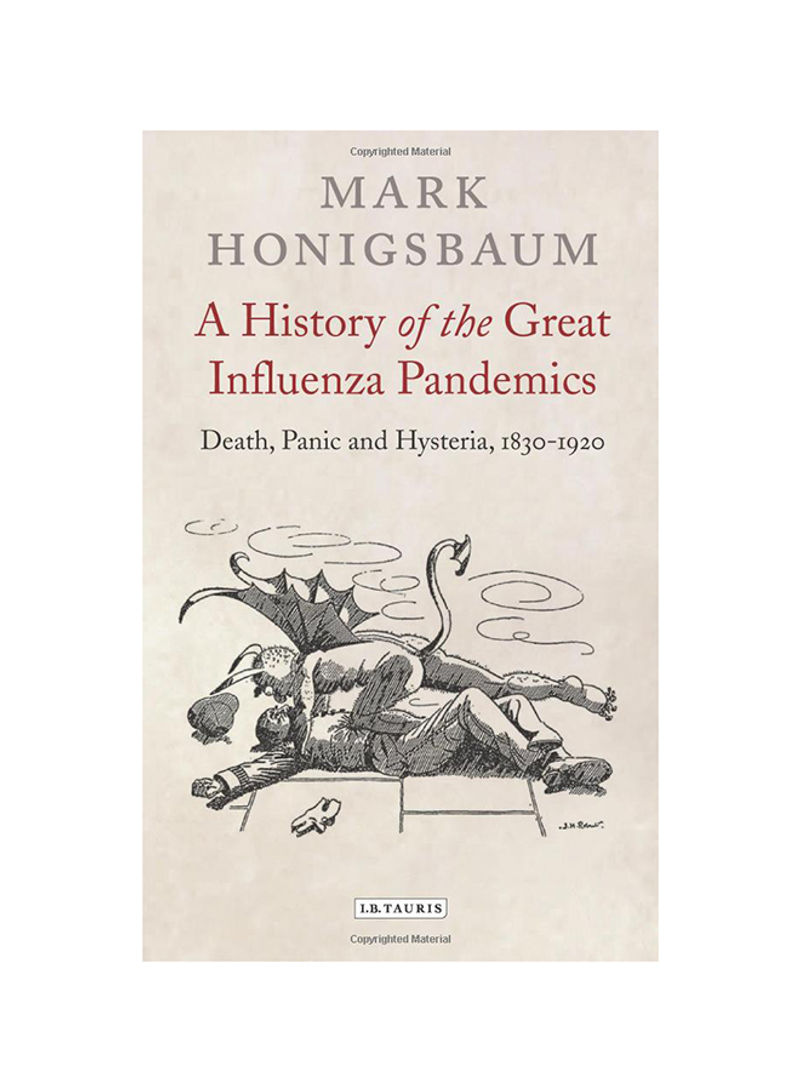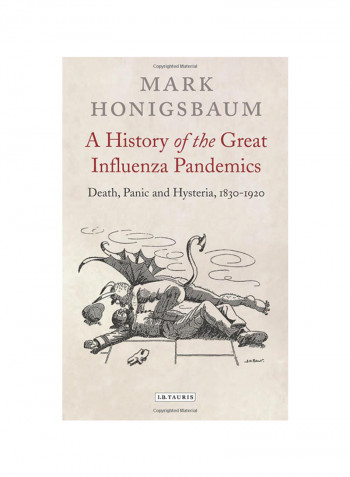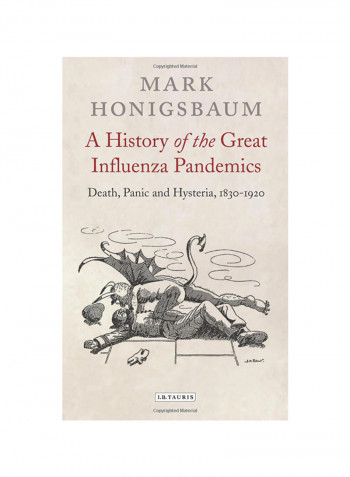A History Of The Great Influenza Pandemics: Death, Panic And Hysteria, 1830-1920 Hardcover
Recommend
Sort by
Rating
Date
Specifications
Author 1
Mark Honigsbaum
Book Description
Influenza was the great killer of the nineteenth and twentieth centuries, and the so-called 'Russian flu' killed around 1 million people across Europe in 1889-93 - including the second-in-line to the British throne, the Duke of Clarence. The Spanish flu of 1918, meanwhile, would kill 50 million people - nearly 3% of the world's population. Here, Mark Honigsbaum outlines the history of influenza in the period, and describes how the fear of disease permeated Victorian culture. These fears were amplified by the invention of the telegraph and the ability of the new mass-market press to whip up public hysteria. The flu was therefore a barometer of wider fin de siecle social and cultural anxieties - playing on fears engendered by economic decline, technology, urbanisation and degeneration. A History of the Great Influenza Pandemics is a vital new contribution towards our understanding of European history and the history of the media.
ISBN-10
1780764782
ISBN-13
9.78178E+12
Language
English
Publisher
I.B.Tauris and Co. Ltd.
Publication Date
12/23/2013
Number of Pages
320
About the Author
Mark Honigsbaum is Lecturer in the History of Medicine at the University of Zurich, and gained his DPhil at Queen Mary University. He is the author ofThe Fever Trail: In Search of the Cure for Malaria (2001). His second book Living With Enza: The Forgotten Story of Britain and the Great Flu Pandemic of 1918 (2009) was nominated as science book of the year by the Royal Society.
Editorial Review
Mark Honigsbaum's new book is ambitious: he seeks to compare and contrast a series of influenza epidemics over more than a century, while also exploring the disease through the history of medicine, emotional comportment, and material realities. The result is riveting. Suffering and celebrity; sensationalism and scientific hubris - these characterise the very human responses to this elusive affliction. This is eloquent, exciting, poignant, and scholarly history.' Joanna Bourke, Professor of History at Birkbeck College, University of London and the author of What it Means to Be Human 'For most, influenza means the 1918-20 pandemic or the more recent threats. In this volume, Honigsbaum cogently reminds us that influenza had an important earlier history. His evaluation of the 'Russian' pandemic of the 1890s is masterful and evocative cartoons, advertisements and illustrations from the late Victorian popular press, brilliantly illustrate the book. Above all, it is a very good read.' William Bynum, Professor Emeritus of the History of Medicine, University College London



